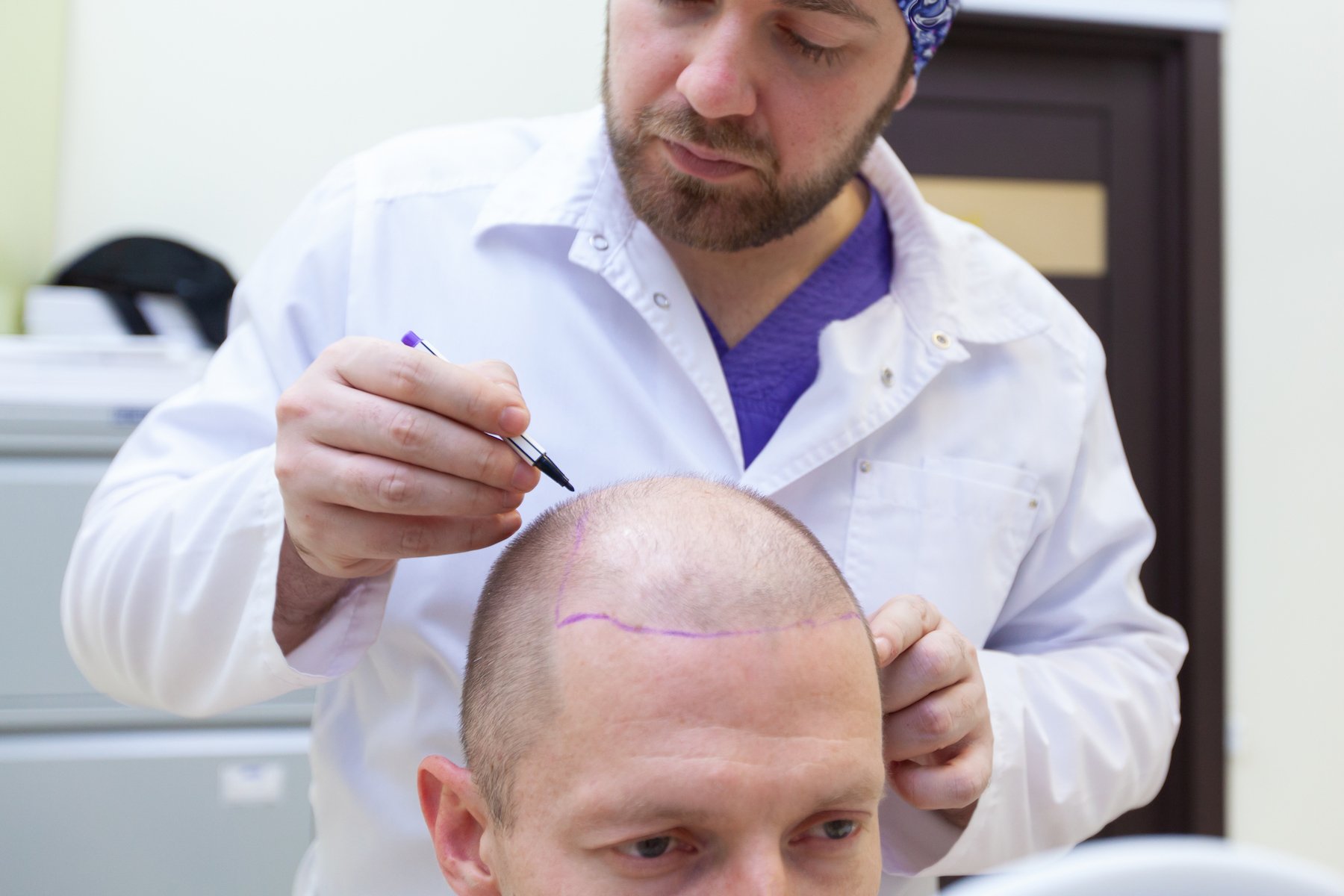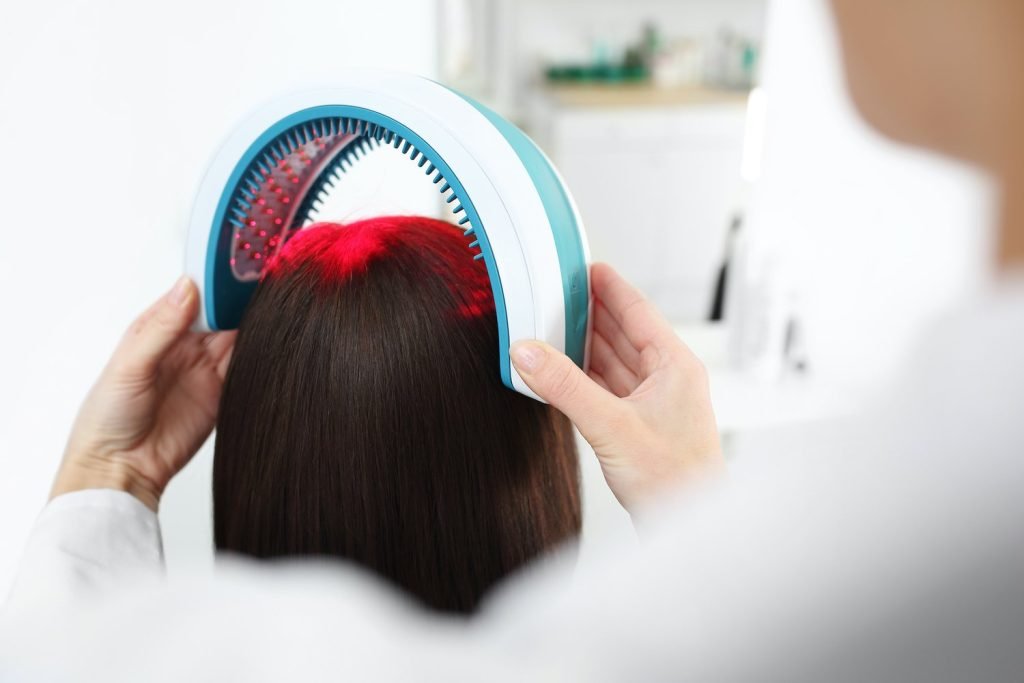- Hairline Clinic - Hair Loss Treatment in Akron and Cleveland Ohio - Schedule FREE Consultation
- 330.285.4815
- CONTACT US
How to Choose a Hair Loss Solutions Provider

Who to see about thinning hair probably depends on the cause. First get a diagnosis, then consider your options for medications, systems, or a hair transplant.
Hair loss happens for a variety of reasons across the broad swath of humanity at different ages. For some, it’s just part of aging and genetics. For others, it happens to them when they are young. For women and men, hair loss can challenge the social paradigm of beauty. It is wholly reasonable that any individual would consider different ways to stop or mitigate unwanted hair loss.
But because the reasons for alopecia – the medical term for hair loss – are so varied, the solutions are equally varied as well. Does one look for a medication, a non-invasive treatment such as laser light stimulation, a cosmetic cover (spray-on electrostatic fibers, or some type of wig or hair replacement system), or hair transplant surgery?
And where does someone go for any of these hair loss treatments?
The answer lies in first identifying the cause of the hair loss. If it is the standard male pattern baldness, characterized by a symmetrical loss (not patches), that’s an easier question to answer. But if the hair loss is mysterious, or tied to illness or medication or emotional trauma, the first step should be with a doctor who can diagnose the problem.
What kind of doctor assesses hair loss causes?
If you think your hair loss is due to hormonal issues, such as recently giving birth, or a disease, an endocrinologist might be your first step. But if it appears to be a scalp issue, a dermatologist is likely a better choice.
Another type of clinician to consider is a trichologist. This is a specialist in hair health and often a subspecialty of dermatologists. But note, the term is not always a board-certified designation. Some trichologists are dermatologists, some aren’t, and those who are should be a member of either the Trichological Society or the Institute of Trichologist, and use the suffix AIT, MIT, or FIT in their titles.
Where is hair loss best treated?
Once the medical or genetic issues are identified – i.e., you have a scientific understanding of why your hair is thinning or gone – you should consult a provider that has the appropriate solutions to offer.
For example, if you are pretty sure you need a hair transplant, the provider needs to offer that. If you wish to restore hair growth with a medication, you’ll need a medical doctor to prescribe finasteride (Propecia brand); alternatively, minoxidil (Rogaine, and other brands) are sold over-the-counter, without a prescription.
If you have no specific idea as to what your course of treatment is, it makes sense to use a hair loss solutions provider with multiple offerings under one roof.
We are a hair loss solutions provider that offers individualized hair loss treatments and solutions for men and women at our hair loss treatment clinics in Cleveland and Akron Ohio.
If you are a man or woman suffering from hair loss conditions, we provide industry-leading, individualized hair loss treatments and hair loss solutions to men and women in Cleveland and Akron, OH. Schedule a FREE confidential consultation and evaluation at our Akron Hair Loss Treatment Clinic or our Cleveland Hair Loss Treatment Clinic by calling 330.633.5225 today!
Hair Loss Treatments
Men's Hair Loss Solutions
Women's Hair Loss Solutions
Men's Hair Loss Solutions
Ready for change? Call our hair loss experts at (330) 285-4815 to schedule a FREE appointment.
HairLine Clinic is an industry leader providing individualized hair loss treatments to men and women experiencing hair loss in Akron and Cleveland, Ohio.










